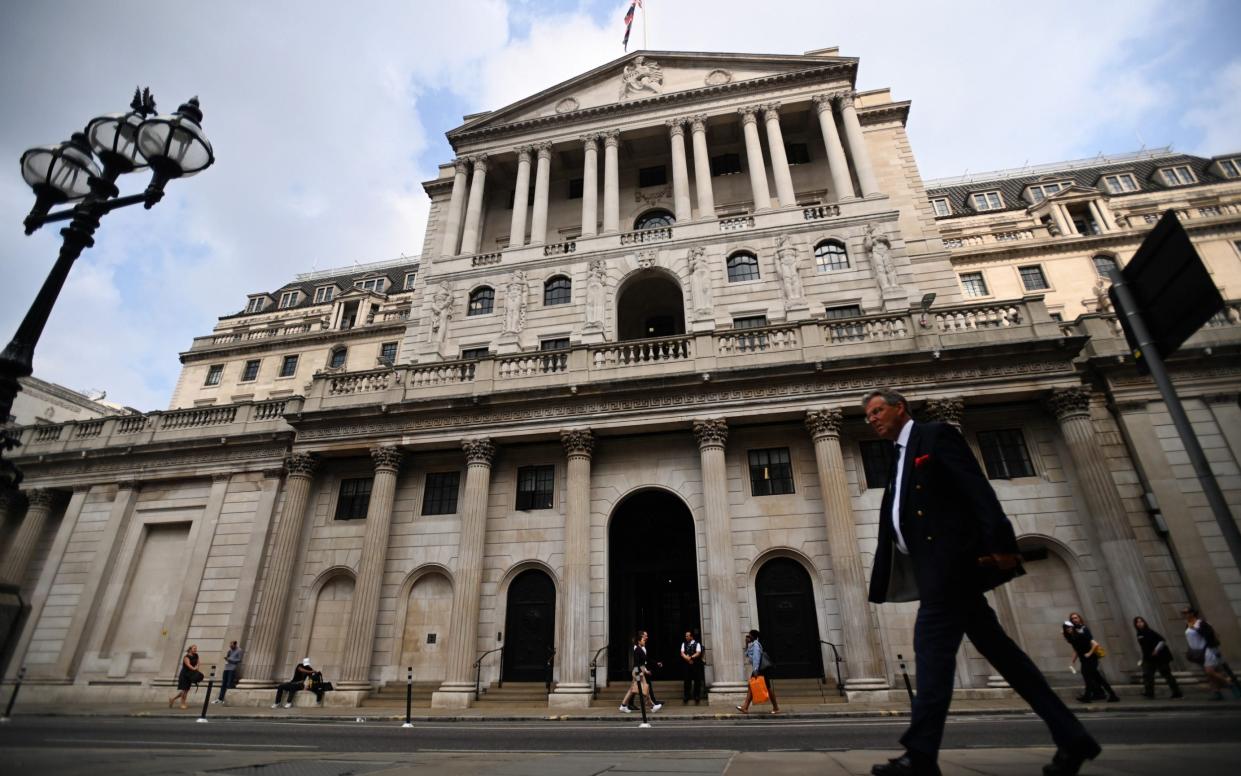Bank of England expected to double interest rates as inflation soars

Interest rates are set to double in the next six months, with traders in financial markets betting the Bank of England will have to step up its efforts to stamp out price rises as inflation breaks into double digits.
Consumer prices rose by 10.1pc in July compared to a year earlier, according to the Office for National Statistics (ONS), outpacing the Bank’s forecasts of a 9.9pc jump.
Officials, led by Governor Andrew Bailey, have already raised rates from 0.1pc in December to 1.75pc earlier this month in an effort to stamp out rising prices.
Financial markets expect the Bank to now take the base rate to 3.5pc, or even 3.75pc, in early 2023. Another 0.5 percentage point increase is expected next month.
“We expect swift action from the Bank of England with the base rate potentially doubling by this time next year,” said Debapratim De, an economist at Deloitte.
The pound fell by one-third of 1pc against both the dollar and the euro despite expectations of higher rates. Investors fear that aggressive rises will worsen a looming recession.
Mr De said: “As the Bank moves aggressively to crush double-digit inflation, we are forecasting a 1.6pc contraction in activity between this autumn and the next. This is a much smaller contraction than the pandemic but, with a sharp squeeze on consumer spending power and likely rise in unemployment, will feel significantly disruptive.”
British two-year government bond yields surged to their highest since November 2008. The gap between 2-year and 10-year gilt yields – sometimes viewed as a signal of recession – was at its most inverted on record at around minus 17 bps.
Inflation is spreading through more parts of the economy and is set to get worse before it gets better, given energy bills are set to rise to more than £3,500 from October when the price cap increases. This is expected to spark the biggest fall in living standards since records began in 1963.
Economists at Bank of America expect inflation to peak at 14pc in January when the energy price cap rises once again.
Grant Fitzner, chief economist at the ONS, said July’s price rises were broad based, with a “notable” rise in food prices helping to push the rate of inflation to the highest since 1982.
Energy remained a major driving force behind inflation in July, with a litre of petrol costing 189.5p on average, compared to 132.6p a year earlier. Diesel prices also climbed to 197.9p, up from 135.5p.

 Yahoo Movies
Yahoo Movies 
